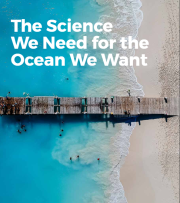The IOC/WESTPAC Training Course on “Impact of Sedimentary Dynamics and Biogeochemistry on Coral Reefs” was held during 15– 18 June 2010 at Koh Samui, Thailand with financial support of the Korea Ocean Research and Development Institute (Korea), East China Normal University (China), and Ramkhamhaeng University (Thailand). This training activity was designed as one of important components of IOC/WESTPAC project “Coral Reefs under Climate and Anthropogenic Perturbations” (IOC/WESTPAC-CorReCAP) in developing collaborations on coral reef research in view of the pressing need from member states in WESTPAC Region on capacity building.
The training activity was designed to:
• build capacity on the impacts of sediment on coral reefs for the WESTPAC member states;
• establish an international research network in the field of sedimentary dynamics on coral reefs;
• identify cooperative activities concerning impacts of sediment on coral reefs in the WESTPAC region;
• share information, technology and methodology among researchers and experts from inside and outside the WESTPAC region.
The training activity covered several important topics from invited experts within WESTPAC Region:
– sedimentary dynamics of coral reef environment (Prof. Dr. Fernando Siringan): sedimentation processes (e.g., sedimentation rate and variability), sediment characteristics (e.g., composition and source), sediment records of past environmental changes, sedimentary dynamics and coral reefs;
– hydro-dynamics of coral reef systems (Prof. Dr. Pramot Sojisuporn): oceanographic characteristics and hydrography in coral reefs, circulation and climate related issues, numerical models and observation techniques;
– marine pollution and biogeochemistry (Prof. Dr. Gi Hoon Hong and Prof. Dr. Jing Zhang): land and marine sources of nutrients and pollutants to coral reefs, cycling of chemical elements in coral reef ecosystems, food-web and biogeochemical dynamics, effect of climate change and human perturbation on the sustainability of coral reefs;
– application of remote sensing and GIS in studying coral reefs (Prof. Dr. Yun Xuan Zhou): remote sensing applications in ocean studies, application of remote sensing techniques in coral reef studies, coastal change monitoring and detection using remote sensing and GIS, Status of remote sensing in the WESTPAC;
– coral biology and ecology of coral reefs (Dr. Thamasak Yeemin): biology of corals and reef ecology, climate change and resilience of coral reefs, impact of sediment loads on corals and coral reef ecosystem, survey and monitoring methodology on coral reefs.
Nineteen participants joined the IOC/WESTPAC Training Course: “Impact of Sedimentary Dynamics and Biogeochemistry on Coral Reefs”, from 7 member countries, including China, Indonesia, Korea, Vietnam, Thailand, Malaysia, and Philippines (3). Most of the participants in this training course were PhD students and a few young scientists and colleagues working in administrations. The research background of participants were mostly coral biology, biogeochemistry, oceanography and microbiology.
The training activity was composed of three parts, i.e., extensive lectures in Day One (15 June) and the morning of Day Three (17 June), field observations at two sites of coral reefs, collection and process on sediment samples, and open discussion and data analysis.
The field observations were carried out on 16 June from morning to late afternoon. Participants were guided to visit two coral reef sites, one with relatively high turbidity along the coast of Koh Samui, the other at a small island with low turbidity across the channel.
Equipment and facilitates for diving and snorkeling were provided, so participants joined the sediment collection and underwater observation of coral reefs, during the mass coral reef bleaching in the Gulf of Thailand. Later in the afternoon, sample processes in the laboratory included water sample filtration with vacuum system, collection of particulate matter from sediment traps, coral settlement plates, etc., it was a good opportunity for to learn several techniques for coral reef research.
On 17 and 18 June were devoted to the participants. Open discussion and poster session were organized, therefore participants had opportunity to introduce their own research works to their colleagues and at the same time, to get known by other participants. This also led to exchange the experiences among participants and lecturers.




